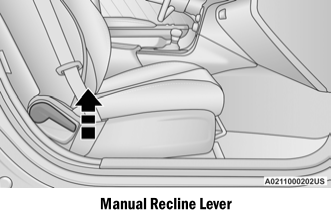Dodge Charger: TECHNICAL SPECIFICATIONS / FUEL REQUIREMENTS
While operating on gasoline with the required octane number, hearing a light knocking sound from the engine is not a cause for concern. However, if the engine is heard making a heavy knocking sound, see a dealer immediately. Use of gasoline with a lower than recommended octane number can cause engine failure and may void the New Vehicle Limited Warranty.
Poor quality gasoline can cause problems such as hard starting, stalling, and hesitations. If you experience these symptoms, try another brand of gasoline before considering service for the vehicle.
- 3.6L Engine and 5.7L Engine
- Reformulated Gasoline. Materials Added To Fuel
- Gasoline/Oxygenate Blends
- Do Not Use E-85 In Non-Flex Fuel Vehicles
- CNG And LP Fuel System Modifications
- Methylcyclopentadienyl Manganese Tricarbonyl (MMT) In Gasoline
 WHEEL AND TIRE TORQUE SPECIFICATIONS
WHEEL AND TIRE TORQUE SPECIFICATIONS
Proper lug nut/bolt torque is very important to ensure that the wheel is properly
mounted to the vehicle. Any time a wheel has been removed and reinstalled on the
vehicle, the lug nuts/ bolts should be torqued using a properly calibrated torque
wrench using a six sided (hex) deep wall socket...
 3.6L Engine and 5.7L Engine
3.6L Engine and 5.7L Engine
3.6L Engine
This engine is designed to meet
all emissions regulations and provide excellent fuel economy and performance when
using high-quality unleaded “regular” gasoline having an octane rating of 87 as
specified by the (R+M)/ 2 method...
Other information:
Dodge Charger 2011-2026 Owner's Manual: Preparations For Jump Start
The battery is stored under an access cover in the trunk. Remote battery posts are located on the right side of the engine compartment for jump starting. Remote Positive (+) Post Remote Negative (-) Post NOTE: The remote battery posts are viewed by standing on the right side of the vehicle looking over the fender...
Dodge Charger 2011-2026 Owner's Manual: Rear Interior Fuses
There is also a power distribution center located in the trunk under the spare tire access panel. This center contains fuses and relays. Fuse cavity location and descriptions are printed on the inside of the power distribution center cover. CAUTION! When installing the power distribution center cover, it is important to ensure the cover is properly positioned and fully latched...
Categories
- Manuals Home
- Dodge Charger Owners Manual
- Dodge Charger Service Manual
- Power Adjustment (Front Seats) — If Equipped
- How To Use Remote Start
- Blind Spot Monitoring (BSM) — If Equipped
- New on site
- Most important about car
Manual Front Seat Recline
To adjust the seatback, lift the lever located on the outboard side of the seat, lean back to the desired position and release the lever. To return the seatback, lift the lever, lean forward and release the lever.

